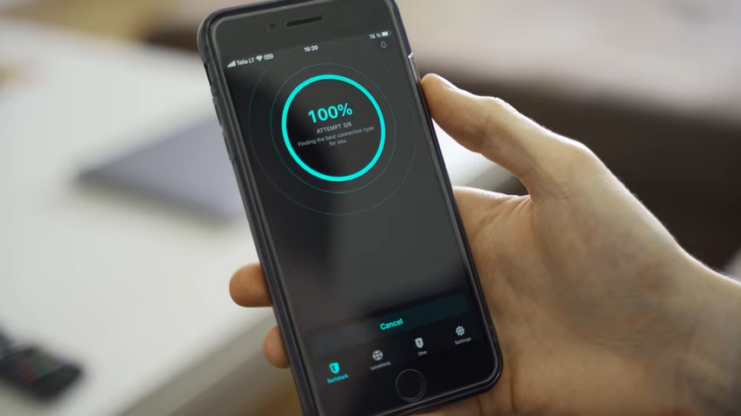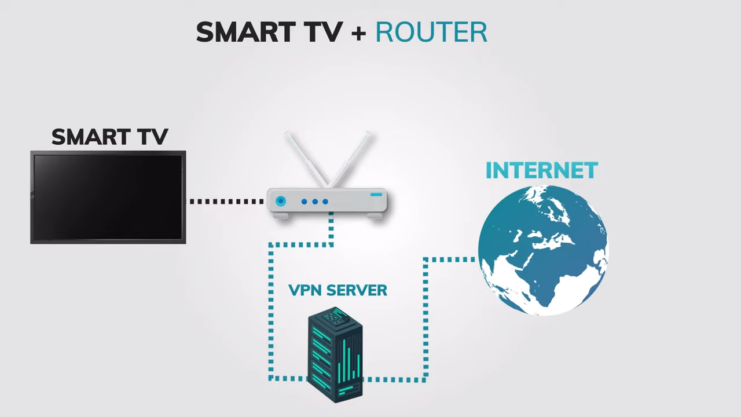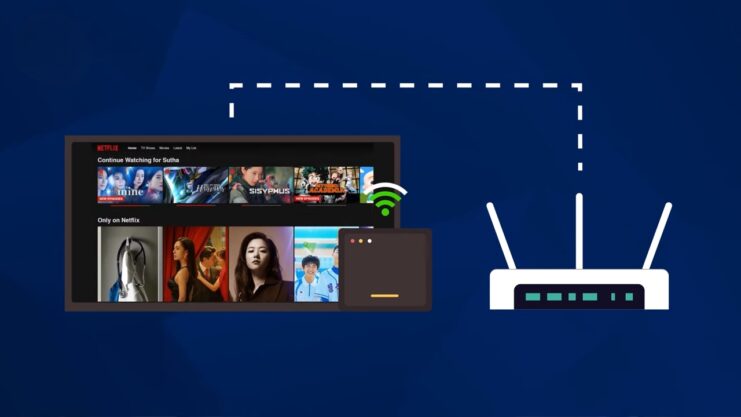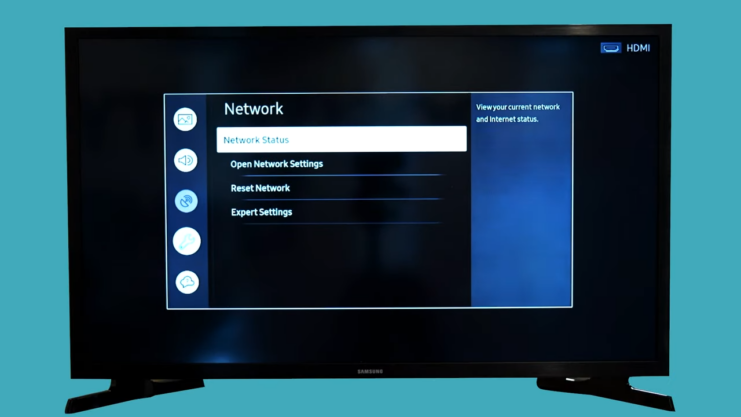In today’s world, where streaming services dominate home entertainment, it’s worth asking: does your TV need a VPN? Today, we will explore this question in depth, providing insights into why a VPN might be a valuable addition to your TV setup and offering tips to enhance your entertainment security.
The Role of Virtual Private Networks with TVs
A VPN (Virtual Private Network) masks your IP address, encrypts your internet connection and hides your online activities. While commonly used on computers and smartphones, VPNs are increasingly relevant for smart TVs.
Why Consider a VPN for Your TV?
- Accessing Geo-Restricted Content: Virtual Private Networks allow you to bypass geographical restrictions set by streaming services, enabling access to a broader range of shows and movies.
- Enhanced Privacy and Security: Virtual Private Networks protect your online activities from being monitored, crucial when using streaming services that track viewing habits.
- Improved Streaming Quality: Some ISPs throttle bandwidth for streaming services. A VPN can prevent this, potentially improving streaming quality.
For Apple TV users seeking a VPN solution, VeePN offers a dedicated app designed to enhance your viewing experience by providing access to geo-restricted content and improving online privacy.
Evaluating the Need for a VPN on Your TV

1. Assessing Your Streaming Habits
Consider your streaming services and content preferences. If accessing content not available in your region is important, a VPN becomes more relevant.
2. Knowing the Impact on Internet Speed
Virtual Private Networks can slow down your internet connection. Ensure your internet speed is sufficient to handle a VPN without compromising streaming quality.
3. Compatibility with Your TV
Not all smart TVs directly support Virtual Private Network apps. You may need to install the Virtual Private Network on a router or use a streaming device that supports VPNs.
How to Set Up a Virtual Private Network on Your TV
Direct Installation
If your smart TV has an app store, check for VPN apps. Installation is straightforward, similar to installing any other app.
Using a VPN-Enabled Router
Setting up a Virtual Private Network on your router protects all devices on the network, including your TV. This method is more complex but offers comprehensive coverage.
Streaming Devices and Virtual Private Networks
Devices like Amazon Fire Stick or Apple TV often support VPN apps. This is an easy workaround if your TV doesn’t support Virtual Private Networks directly.
Choosing the Right VPN for Your TV

Important Features to Consider
- Speed: Opt for a Virtual Private Network known for high speeds to avoid buffering issues.
- Server Locations: More server locations mean more content options.
- Privacy Policy: Choose a Virtual Private Network with a strict no-logs policy for enhanced privacy.
- Ease of Use: User-friendly interfaces make managing Virtual Private Network settings simpler.
Recommended VPN Providers
- VeePN: Lag-free streaming experience for Apple TV users.
- ExpressVPN: Known for its speed and wide range of server locations.
- NordVPN: Offers robust security features and a strong privacy policy.
- Surfshark: A budget-friendly option with unlimited device connections.
Maximizing Your Experience
Regular Updates
Keep your Virtual Private Network app updated to ensure optimal performance and security.
Experiment with Different Servers
Different servers offer different speeds and access to various content libraries. Experiment to find the best one for your needs.
Monitor Your Internet Speed
Be aware of how your VPN impacts your internet speed and adjust settings if necessary to maintain a good balance between security and performance.
Advanced Tips for VPN Users on Smart TVs

Utilizing Split Tunneling
Some Virtual Private Networks offer split tunneling, allowing you to choose which apps go through the VPN. This can be useful if you want your streaming service to use the Virtual Private Network while other apps connect directly to the internet.
Overcoming VPN Blocks
Some streaming services actively block VPNs. In these cases, look for a VPN that offers obfuscated servers, designed to bypass these blocks.
The Impact on Smart TV Features
Using a VPN might affect certain smart TV features like local weather or news updates. Be prepared to disable the VPN temporarily for these services.
Troubleshooting Common Issues
1. Connectivity Problems
If you experience connectivity issues, try switching to a different server or protocol in your VPN settings. Sometimes, simply restarting your TV and Virtual Private Network can resolve these issues.
2. Slow Streaming Speeds
If your Virtual Private Network is causing slow speeds, try servers closer to your location. Also, check if your VPN offers optimized servers for streaming.
3. Compatibility Challenges
For TVs that don’t support Virtual Private Networks directly, consider using a VPN-enabled router or a compatible streaming device. Alternatively, casting or mirroring from a VPN-protected device can be a solution.
FAQs

Can I Use a Free VPN with My Smart TV?
Yes, but free versions often have limitations like slower speeds, fewer server options, and less robust security features compared to paid services.
Will a VPN Allow Me to Bypass All Geo-Restrictions on Streaming Services?
While VPNs can bypass many geo-restrictions, some streaming services have advanced detection methods that might still block certain content.
Does Using a VPN on My TV Impact Other Devices Connected to My Network?
If it is installed directly on your TV, it won’t affect other devices. However, if installed on your router, all connected devices will use the Virtual Private Network.
Can a VPN Improve My TV’s Streaming Resolution?
It doesn’t directly improve resolution, but it can prevent ISP throttling, potentially leading to smoother playback at higher resolutions.
Are There Specific VPNs that Work Better for Certain TV Brands or Models?
Some Virtual Private Networks may offer better compatibility or performance with specific TV brands or models, so it’s advisable to check compatibility before subscribing.
Will a VPN Protect Me from Viruses on My Smart TV?
A Virtual Private Network does not protect against viruses. It secures your online activity and privacy. You’ll need separate security measures for virus protection.
Final Words
Integrating a VPN with your TV can open up a world of entertainment possibilities while enhancing your privacy and security. By carefully choosing a provider and understanding the setup process, you can significantly enrich your streaming experience.
Keep in mind that a VPN is not just a tool for tech enthusiasts but a valuable addition to any modern entertainment setup. Follow these tips and stay informed about VPN technology, and you will ensure that your TV viewing experience is both secure and enjoyable.

